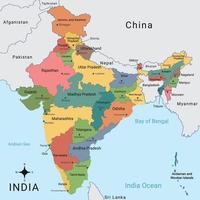Morarji Desai
| Full Name | Morarji Ranchhodji Desai |
| Date of Birth | February 29, 1896 |
| Place of Birth | Bulsar (now Valsad), Gujarat |
| Date of Death | April 10, 1995 |
| Age at Death | 99 years old |
| Parents | Ranchhodji Desai, Vrajben Desai |
| Spouse | Unmarried |
| Political Party | Indian National Congress (INC), Janata Party |
| Religion | Hindu (Gandhian philosophy) |
| Nationality | Indian |

Introduction:
Morarji Desai was a prominent Indian independence activist, bureaucrat, and politician who served as the 4th Prime Minister of India from 1977 to 1979. He is particularly remembered for his role in the Janata Party, his resistance to authoritarianism, and his emphasis on non-violence and social justice. Desai was a man of remarkable discipline, and he is often hailed for his honesty, austerity, and commitment to public service. His tenure as Prime Minister was shaped by efforts to reduce corruption and promote transparency in governance.
Childhood & Early Life:
- Birth & Family Background:
Morarji Desai was born on February 29, 1896, in the town of Bulsar (now Valsad) in Gujarat, into a conservative, middle-class Gujarati family. His father, Ranchhodji Desai, was a farmer, while his mother, Vrajben Desai, was a deeply religious woman. Morarji was the eldest of eight siblings, and his upbringing instilled in him values of simplicity and discipline. - Education:
Morarji Desai was a bright student and completed his early education in his hometown. He later moved to Aligarh Muslim University, where he studied briefly before joining the British Indian Police as a clerk. His early life was marked by the influence of Gandhian principles—he developed a deep sense of nationalism and service to the people. - Early Political Awakening:
Desai was drawn to politics at a young age and joined the Indian National Congress. During the Non-Cooperation Movement of 1920, he became actively involved in the Indian independence struggle. His time in politics was marked by his support for Gandhian methods of non-violence and civil disobedience.
Political Career:
- Role in Indian Independence Movement:
Desai joined the Indian National Congress in the 1920s and became an ardent follower of Mahatma Gandhi. He participated in various civil disobedience movements and was arrested multiple times by the British colonial authorities. His early political activities were centered on Gandhi’s campaigns, and he worked alongside other leaders like Jawaharlal Nehru and Sardar Vallabhbhai Patel. - Post-Independence Era:
After India’s independence in 1947, Desai entered the Indian civil service and held several important positions within the government. He was appointed as the Deputy Prime Minister of India and Finance Minister during the tenure of Jawaharlal Nehru (1956-1959). Desai played an instrumental role in the economic planning of India, focusing on industrialization and financial reforms. - Leadership in the Janata Party:
Desai’s political journey took a significant turn in the 1970s, when he became a key figure in the Janata Party. The party emerged as a coalition of various opposition groups, including the Socialist Party, BJP, and Lok Dal. Desai opposed the Emergency imposed by Indira Gandhi (1975-77), which led to widespread political repression. After the Emergency ended and general elections were held in 1977, Desai became the Prime Minister of India. - Prime Ministership (1977-1979):
As the leader of the Janata Party, Desai assumed office on March 24, 1977. His government emphasized austerity, non-violence, and honesty in public life. During his tenure, he focused on curbing corruption, promoting economic self-reliance, and ensuring that the administration was transparent and accountable. However, his government struggled with internal party conflicts, and Desai resigned from the position in 1979.
Major Works & Contributions:
- Promotion of Non-Violence:
Desai was a staunch advocate of non-violence, following in the footsteps of Mahatma Gandhi. His approach to leadership was characterized by simplicity, self-control, and peace, and he sought to implement these values within Indian society. - Economic Policies:
His government focused on promoting economic self-reliance and independence. He emphasized austerity measures, reducing government spending, and advocating for public participation in economic development. His policies focused on agriculture, rural development, and poverty alleviation. - Anti-Corruption Measures:
Desai’s administration took strong steps to tackle corruption in the government. He promoted transparency and sought to improve the integrity of public offices, though his tenure was relatively short, and full reforms in this area were not realized. - Foreign Policy:
Desai maintained an independent foreign policy, focusing on strengthening India’s relationships with neighboring countries, and the larger world community. His government attempted to build stronger ties with countries like the United States, the Soviet Union, and others in South Asia. - Advocacy for Vegetarianism & Health:
Desai was a strict vegetarian and advocated a simple and disciplined lifestyle. He believed that healthy living was essential for a long life. In an unusual and somewhat controversial practice, he claimed that drinking his own urine helped maintain his health.
Awards & Achievements:
- Bharat Ratna (1991):
In recognition of his lifelong service to the country, Desai was posthumously awarded the Bharat Ratna, India’s highest civilian award, in 1991. The award acknowledged his role in the independence movement, his commitment to public service, and his legacy as a political leader. - Global Recognition:
Desai’s political style was admired internationally, and he earned recognition for his stand on anti-corruption, honesty, and his simple way of living. Even after his resignation as Prime Minister, his influence in Indian politics continued to be felt.
Personal Life & Legacy:
- Personal Life:
Morarji Desai led a very simple and ascetic life. Despite being a public figure, he maintained a high level of personal discipline. He never married, which was unusual for someone of his prominence. Desai often cited his commitment to self-realization and public service as the reason for his celibacy. He followed a strict vegetarian diet, was a firm believer in fasting for health, and was known for his daily yoga practice. - Legacy:
Desai’s legacy lives on as an embodiment of honesty, integrity, and discipline in Indian politics. He is revered for his courage in standing up against authoritarian rule during the Emergency and for his focus on ethical governance. His commitment to rural development and social justice continues to inspire leaders in India. He is also remembered for being the oldest person to serve as Prime Minister of India, assuming office at the age of 81.
Trivia:
- The Urine Drinking Controversy:
Morarji Desai gained international fame for his belief in drinking his own urine as a health practice, claiming it had medicinal properties. This practice led to mixed reactions from both the public and media. - Oldest Prime Minister:
At the age of 81, Desai became the oldest person to take office as India’s Prime Minister, a fact that remains a historical record. - Influence of Gandhi:
Desai was deeply influenced by Mahatma Gandhi, and he followed many of Gandhi’s principles throughout his life. Desai often referred to himself as a Gandhian, particularly in his emphasis on non-violence and simplicity. - Decades of Service:
Desai’s involvement in politics spanned over seven decades, and he was active in public life from the British colonial era through to post-independence India, impacting multiple generations.
Key Terms:
- achievements ,
- anti-corruption ,
- austerity ,
- awards ,
- Bharat Ratna ,
- early life ,
- Gandhi ,
- honesty ,
- India politics ,
- Indian Independence ,
- Indian National Congress ,
- Janata Party ,
- Morarji Desai Biography ,
- non-violence ,
- personal life ,
- political career ,
- Political Leader ,
- Political Legacy ,
- Prime Minister of India ,
- public service ,
- vegetarian lifestyle
Disclaimer: The information provided here has been compiled from various sources to the best of our knowledge. While every effort has been made to ensure the accuracy of the details, there may be occasional errors or omissions. If you find any discrepancies or incorrect information, kindly inform us so we can make the necessary corrections. Thank you for your understanding and cooperation.





